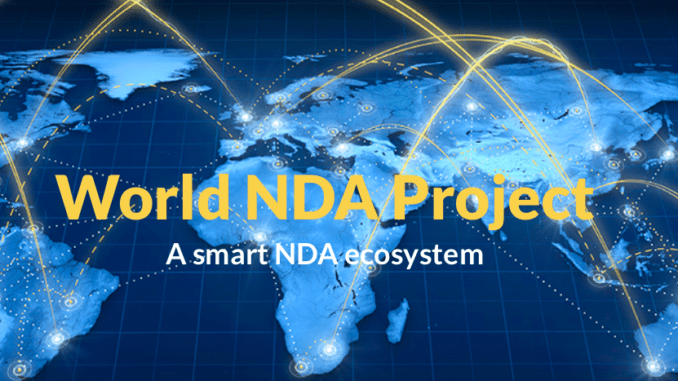
IBM’s Cognitive Legal AI group and blockchain pioneer Integra Ledger have today launched the World NDA Project, which seeks to revolutionise contract management and analysis by combining AI and blockchain technology.
The project will take NDAs and place key identifier information onto the Integra permissioned blockchain; for example, the names of the parties, companies involved and other information that may need to be shared according to the non-disclosure document. This will provide a secure, single version of truth for the NDA. IBM Watson’s AI technology will then be applied to deliver insight into that data, covering legal and business intelligence issues.
As a company adds more NDAs to the blockchain the level of insight could be significant given that it is estimated hundreds of thousands – if not millions – of NDAs are produced, whether standalone or part of other contractual agreements, by the world’s largest companies every year.

The initiative is the brainchild of David Fisher, founder and CEO of Integra Ledger, and Brian Kuhn, of IBM’s Cognitive Legal group which makes use of the company’s Watson AI technology. Both groups are also part of the Global Legal Blockchain Consortium.
Kuhn and Fisher told Artificial Lawyer that this was all about ‘making operational’ the theory behind AI and blockchain synergies. NDAs were chosen as they are both commonly used, and although there is a degree of homogeneity there continues to be signifiant variation in how the documents are worded and constructed.
Or as Fisher puts it, although most NDAs have much in common: ‘Companies are using many NDAs, not all of which are their own documents, there are lots of third parties involved, and it can be chaotic.’ Placing these documents’ key data points onto a blockchain, or distributed ledger, could therefore greatly improve their management.
NDAs also lend themselves well to the benefits of using a permissioned blockchain. Companies want to ensure that there is no confusion over who has agreed to which NDA and on a blockchain there is only one version of truth. This means differing versions of what could be a vital NDA are not floating around on multiple emails. The blockchain can also verify that someone has signed an agreement and confirm their identity.

‘ID goes to the heart of NDAs,’ adds Kuhn. ‘[With this system] you also address version control and can be exact about who are the parties.’
In turn, the accuracy of the data makes AI-driven analysis more valuable, or as Kuhn says, AI-based analysis can only ever be as good as the data you’re exploring. So, verifiably accurate contract data, in this case that of NDAs, is of great value.
Once a company has built up a number of NDAs on the blockchain, IBM’s AI tech will be used to examine patterns and trends in the data to help surface new value and insight for the users, for example, helping companies to see trends in NDAs related to certain types of IP, or sectors, or geographies, even down to individuals.

The groundbreaking World NDA Project can be seen as something of a test case for what could eventually involve a broad range of other legal documents and usher in eventually a new paradigm for storing legal data securely on a global basis, then using AI technology to allow companies to understand trends and patterns in the blockchain-held data.
There is also, in future, the opportunity to store whole NDAs on the blockchain, though for now the focus will be on working with just key data extracted from the documents. There is also scope for tracing particular clauses in an NDA and giving them unique identifiers on the blockchain, in effect creating a ‘meta-map’ of the NDA stack a company may have, showing trends in clause use over time. Then there is the idea of adding computable elements, i.e. creating smart NDA contracts as another possible future avenue, that could also be stored on Integra.
Naturally, these are early days, but this is a fundamental shift away from traditional document management systems, adding new levels of security, reliability and additional insight into the process. Perhaps one day all legal documents will be stored this way.